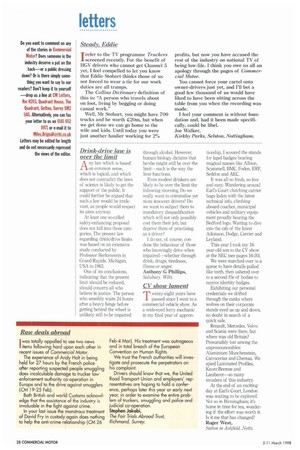Drink-drive law is over the limit
Page 30

If you've noticed an error in this article please click here to report it so we can fix it.
Anylaw which is based on common sense, which is logical, and which does not contradict the laws of science is likely to get the support of the public. It could further be argued that such a law would be irrelevant, as people would respect its aims anyway
At least one so-called safety-enhancing proposal does not fall into those categories. The present law regarding drink/drive limits was based on an extensive study conducted by Professor Borkenstein in Grand Rapids, Michigan, USA in 1963.
One of its conclusions, indicating that the present limit should be reduced, should concern all who believe in justice. The person who sensibly waits 24 hours after a heavy binge before getting behind the wheel is unlikely still to be impaired through alcohol. However, human biology dictates that he/she might still be over the limit—such is the way the liver functions.
Even modest drinkers are likely to be over the limit the following morning. Do we really want to criminalise yet more innocent drivers? Do we want to subject them to mandatory disqualification which will not only possibly cost them their job, but deprive them of practising as a driver?
I do not, of course, condone the behaviour of those who knowingly drive when impaired—whether through drink, drugs, tiredness, illness or anger.
Anthony G Phillips, Salisbury, Wilts.




































































































































